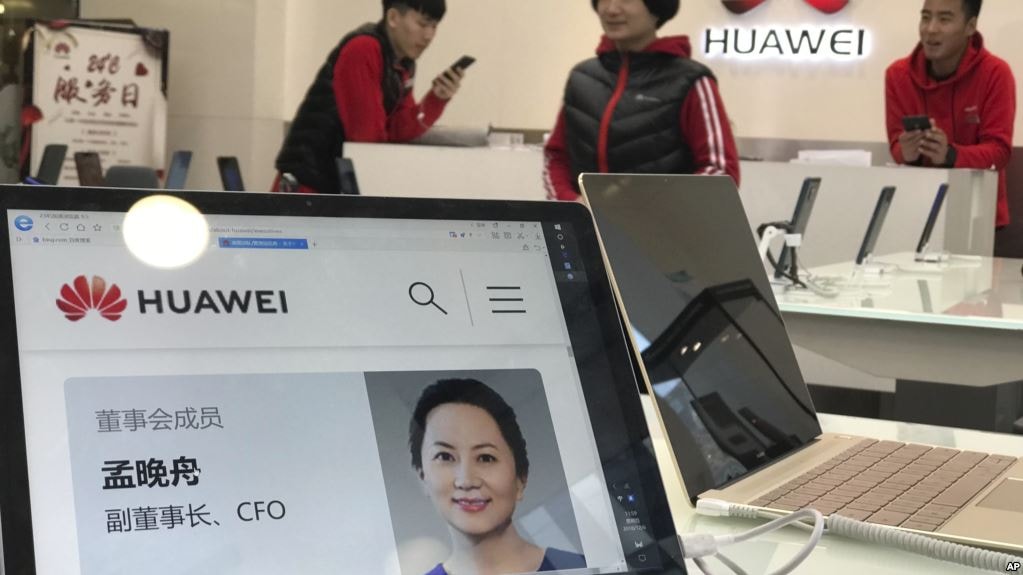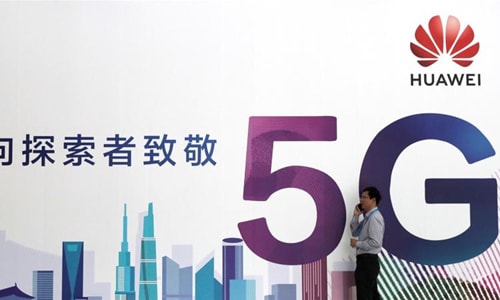Many countries are wary of Huawei regarding information security.
In addition to accusations of violating sanctions against Iran and North Korea, many countries believe that Huawei's 5G technology threatens information security.
In recent years, Huawei has been accused of violating sanctions against Iran and North Korea by supplying telecommunications equipment to the two countries. Moreover, it can be used to monitor people. Some countries have warned against using Chinese-origin equipment because of suspicions that Beijing uses Huawei products to spy on people around the world.
Tuy nhiên, phần lớn lo ngại tới từ sự gia tăng ảnh hưởng của Huawei khi tập đoàn dự kiến cung cấp công nghệ mạng 5G trên toàn cầu. Huawei đã phủ nhận tất cả cáo buộc rằng họ có thể liên quan tới việc thu thập tin tình báo của Chính phủ Trung Quốc. Dù vậy, một số quốc gia vẫn tuyên bố không cho phép Huawei tham gia thử nghiệm 5G và nhiều nước đang xem xét vấn đề này.
|
| Công ty Huawei của Trung Quốc. |
Mỹ
Mỹ là đối thủ lớn nhất của Trung Quốc về kinh tế cũng như thu thập tin tình báo toàn cầu. Washington lo sợ Bắc Kinh sẽ truy cập vào thông tin nhạy cảm của người dùng, chẳng hạn như dữ liệu định vị, và có thể gây ra mối đe dọa tiềm tàng đối với các cơ sở hạ tầng quan trọng.
Để ngăn chặn nguy cơ này, các nghị sĩ Mỹ đã kêu gọi nhà cung cấp dịch vụ Internet AT&T xem xét lại những thỏa thuận với Huawei. Năm 2012, Washington cũng tiến hành điều tra Huawei và ZTE, một tập đoàn viễn thông khác của Trung Quốc, để xem xét liệu thiết bị của họ có đe dọa lợi ích của Mỹ hay không.
Quốc hội Mỹ sau đó kết luận rằng "Huawei không hoàn toàn hợp tác với cuộc điều tra và không sẵn sàng giải thích mối quan hệ với chính phủ hoặc đảng Cộng sản Trung Quốc, trong khi có bằng chứng đáng tin cậy cho thấy tập đoàn không tuân thủ luật pháp Mỹ".
Kể từ đó, Mỹ nỗ lực ngăn chặn các nước đồng minh sử dụng công nghệ của Huawei, đặc biệt là các thành viên của liên minh tình báo Five Eyes, bao gồm Canada, New Zealand, Australia và Anh, bởi những quốc gia này sở hữu các cơ quan tình báo chia sẻ thông tin trên quy mô lớn. Mỹ cũng cố gắng thuyết phục những nước khác như Đức không cho phép Huawei cung cấp công nghệ trong tương lai gần.
Australia
Chính phủ Australia hồi tháng 8 tuyên bố những công ty "có khả năng phụ thuộc vào chỉ đạo của chính phủ nước ngoài" sẽ không được phép cung cấp công nghệ 5G, ám chỉ Huawei. Tập đoàn của Trung Quốc hiện cung cấp mạng 4G cho Australia, nhưng với sự ra đời của 5G, sẽ có thêm nhiều sản phẩm kết nối với Internet trong tương lai gần.
Sau quyết định của Australia, Huawei cho biết 4G và 5G về cơ bản không có sự khác biệt, ngoại trừ việc 5G giúp bảo mật tốt hơn, nói thêm rằng cáo buộc của Australia không dựa trên thực tế.
|
A billboard advertising Huawei's 5G mobile network. Photo:Reuters. |
New Zealand
In November, New Zealand announced it would follow Australia's lead, rejecting mobile carrier Spark's request to use Huawei equipment for its 5G network.
"I have informed Spark that a serious security risk has been identified," Andrew Hampton, director general of the New Zealand Government Communications Security Bureau, said, without giving details of the risks.
Older brother
As the second most important member of the Five Eyes group, Britain has been repeatedly called upon by its allies to ban Huawei from its 5G networks. So far, Britain has not done so, but the government is discussing special measures.
Earlier this month, MI6 Director Alex Younger also expressed doubts about Huawei. In a 2013 report, the British government concluded that while there was no direct evidence that Huawei caused harm, the company’s partial responsibility for critical technology could pose risks.
Before the government's decision, British telecom company BT announced on December 5 that it would not use Huawei technology as the backbone of its upcoming 5G network, and would remove Huawei products from its 3G and 4G networks.
Canada
Under the influence of the Five Eyes countries, Canada is also considering the risks from Huawei technology. The press of this country revealed that US lawmakers have discussed with Canadian officials and companies about banning the deployment of Huawei technology in the 5G network.
"While Canada has strong security measures in place, we remain deeply concerned that they are inadequate to address what the United States and other allies have discovered about Huawei," Senators Mark Warner and Marco Rubio wrote in a letter to Prime Minister Justin Trudeau.
Canada’s Communications Security Establishment (CSE) announced in September that it had been testing Huawei equipment for several years to determine whether it posed a risk to the country. However, Canadian media reported that telecommunications companies have not yet announced a ban on Huawei equipment.
Virtue
Germany, a key Five Eyes ally, is still using Huawei technology and has not made a decision. Officials said last month they were planning to persuade the government to consider excluding Chinese companies like Huawei from building 5G networks.
"The concern is very serious. If it were up to us, we would do the same as Australia," a German official toldReuters. The Foreign and Home Affairs Ministries are said to have stepped up their push for the government after discussions with the US and Australia.
"We need to examine each case individually to ensure that critical infrastructure is protected. This could lead to the exclusion of Chinese companies from building 5G networks," said MP Katharina Droege.
Japan
Japanese media revealed on December 7 that the country plans to amend its internal rules on purchasing technology products from China. Accordingly, Japanese government agencies will be banned from purchasing telecommunications products from Huawei and ZTE.
The Japanese government declined to comment. However, Chief Cabinet Secretary Yoshihide Suga said they had been in discussions with the US. "Cybersecurity is gradually becoming an important issue in Japan. We will take resolute measures to consider it from various angles," he said.
Japan is among the countries that currently rely heavily on Huawei equipment.
Italy and India
In addition to Japan, the US has also expressed concerns about Huawei to Italy, one of the countries currently using the Chinese corporation's products for its mobile internet system. However, Italy has not yet decided which company will provide equipment for its 5G network.
In September, Indian media reported that Huawei was banned from participating in 5G trials in the country, but shortly after, Huawei and the Indian government said the group had been invited to test equipment in the world's second-largest mobile market.



